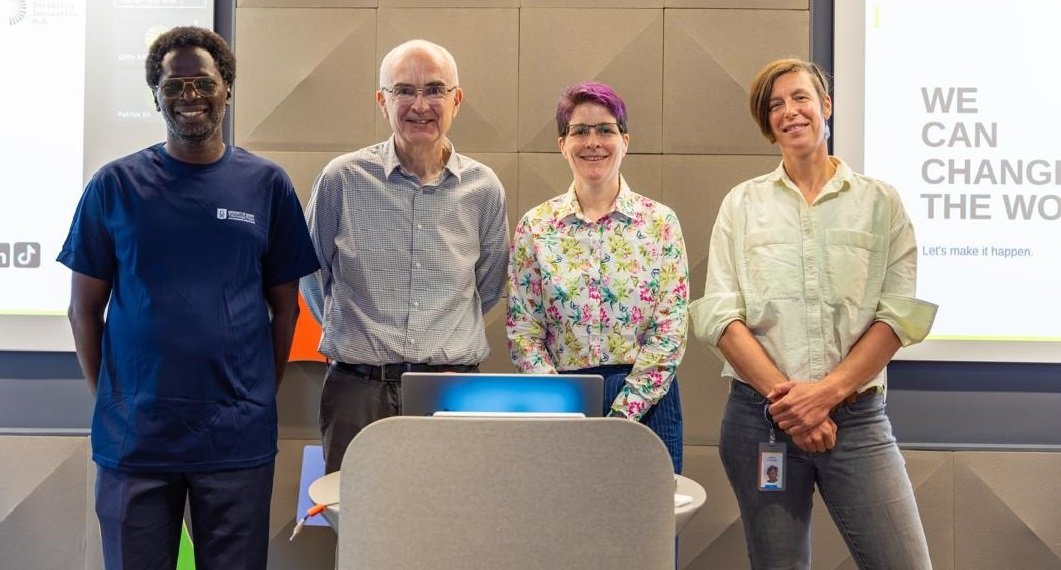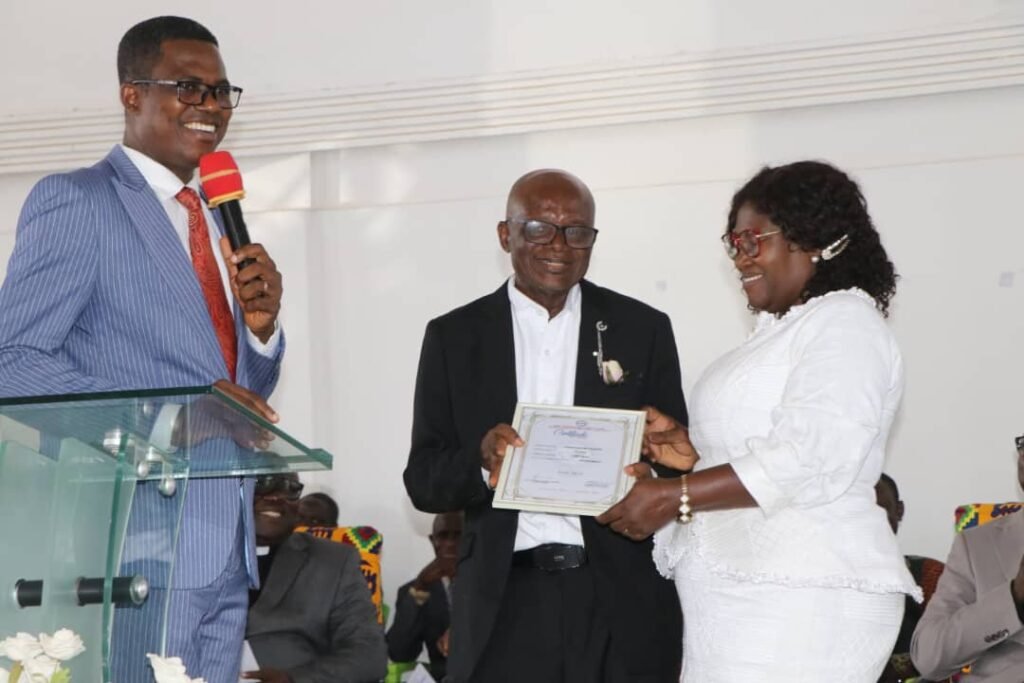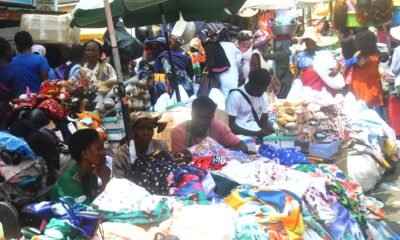News
3 institutions collaborate to improve communication for individuals with non-standard

Prof Wiafe (left) with other speakers at the event
The University of Ghana (UG), Google Research Africa, and University College of London (UCL)’s Global Disability Innovation Hub (GDI Hub) have collaborated on an AI-based initiative to improve communication for individuals with non-standard speech patterns in Ghana.
Known as ‘tekyerema pa’ (Good Tongue) project, it aims to address the gap faced by many individuals with non-standard speech due to conditions like cerebral palsy, Amyotrophic Lateral Sclerosis (ALS) stroke, Down’s syndrome, or parkinson disease
ALS is a rare, fatal disease that causes the progressive loss of nerve cells in the brain and spinal cord that control voluntary muscle movement.
The project is supported by a $40,000 grant from Google with research expertise from UCL’s GDI Hub provided through the AT2030 programme.
At a media briefing in Accra on last Friday, Prof. Isaac Wiafe, Project Lead and an Associate Professor, University of Ghana, said the project was focused on improving AI-powered speech recognition technology for five major Ghanaian languages, marking a significant step in making communication more inclusive for all.
The five Ghanaian languages were Akan, Ewe, Ikposo, Dagaare and Dagbani.
He explained that current software programmes or hardware devices that converts spoken words into a readable text format known as Speech Recognition Technologies often struggle to accurately interpret.
Prof. Wiafe said “we are thrilled to lead this important initiative, which reflects our commitment to using technology to solve real-world challenges.
By developing localised AI solutions, we can ensure that more Ghanaians have the opportunity to communicate effectively, regardless of their speech patterns.”
A Senior Research Scientist, Google Research, Katrin Tomanek, said the project reflected Google’s ongoing commitment to supporting AI research in Africa and ensuring that technological advances benefit everyone, regardless of how they speak.
She said the project builds on continuous research in making Automatic Speech Recognition (ASR) more accessible with the hope of using the insights from their work in project Euphonia to help local researchers create Automatic Speech Recognition (ASR) models for local languages.
She said the collaboration will not only benefit individuals in Ghana but also provide valuable insights for global AI development adding, that it will lay the foundation for future language models and collection in Africa.
By Jemima Esinam Kua
News
Craze for x’mas shopping: Crowded markets, low patronage

Vendors of food and other wares associated with the Christmas celebration have expressed surprise at the low patronage despite the increased number of visitors to some of the major markets across the capital.
Four days to the celebration(Christmas), the markets are filled with various products ranging from food, clothing, livestock and many other stuff, but according to the vendors, patrons are doing more ‘window’ shopping.




The Spectator on visits to some of the markets in the capital, notably the Odawna, Makola, Accra Central Business District, New Town and others made similar observations as shoppers crowd them but did little in terms of purchases.
The paper also observed that majority of vendors, originally selling other wares have switched to product related to the festive season.
What it means is that there are a lot more clothes, food and vegetables, livestock and poultry, toys, firecrackers, drinks of different types and many others on display.




The markets have also stretched to the pedestrian pavement, leaving very narrow spaces for commuters to move about freely.
That, in addition to a few of the female vendors dressed in coloured attires to reflect the occasion, has heightened the euphoria, leaving the low sales as the only headache for the vendors.
Speaking with this paper, they sounded very optimistic, believing that sales would improve in the last few days to the yuletide.
According to them, there was the opportunity to sell beyond Christmas as the New Year celebration offers similar opportunity to trade the same wares.
They urged patrons to throng the markets to shop since prices were quite moderate and products affordable for all.
News
Retirement service for Elder John Ackom-Asante,3 others

Retired Deputy Editor of The Spectator, Elder John Ackom-Asante, was last Sunday honoured by the Church of Pentecost Windy Hills District in Kasoa in the Central Region, with a retirement thanksgiving service, after serving for 26 year as an Elder of the church.
He was honoured with a citation and certificate of service along with three other elders who served in the capacity for various years.





Elder Ackom-Asante was baptised at the Darkuman Central Assembly in 1979 and ordained as an Elder in 1997.
The citation read “Your selfless service, zeal, willingness to relate wholeheartedly and your desire to effect change has gone a long way to shape the lives of many people in the church and the nation over the 26 years of your dedication to the service of the Lord.”
Elder Ackom- Asante held many positions at the Darkuman Central Assembly, Obuasi in the Ashanti Region and Tema, serving in various capacities as youth and evangelism ministry leader and marriage counsellor.







He was the founding member of the Darkuman Christian Fellowship, a member of the Greater Accra Christian Fellowship; member of Bible Society of Ghana; founding member Obuasi Chapter Full Gospel Businessmen Fellowship International and founding member of New Times Corporation Christian Fellowship and Chaplain, Methodist University Tema Campus 2009- 2010.
As a professional journalist, Elder Ackom-Asante combined effectively and efficiently his duty as a member and elder of the church and the demands of his profession, with admiration from the church, kith and kin, till his retirement on December
From Alhaji Salifu Abdul-Rahaman, Kasoa











